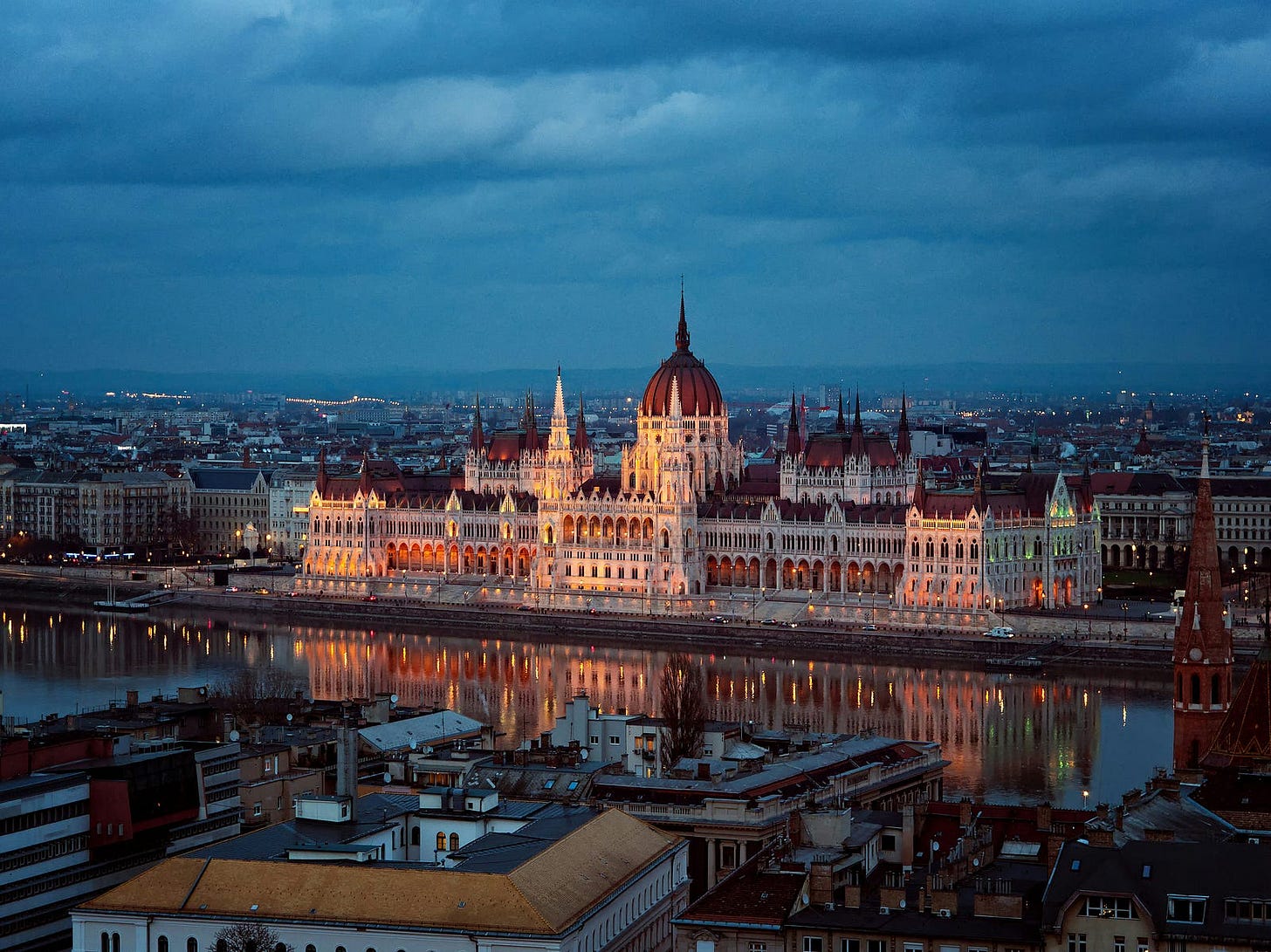Viktor Orbán Points the Way
Show-&-Tell from the Hungarian Autocrat to the United States of America

Shortly before the pandemic I spent a week in Budapest, partly thanks to an invitation to an interdisciplinary conference. It was a magical time.
Knowing it would probably be my last visit to the city, I splurged on a room in the historic Buda hills, overlooking the Danube and the stunningly beautiful House of Parliament. Built at the end of the 19th century over a 17-year period (1885–1902,) the palatial building is now a World Heritage Site has become the symbol of Hungary.
When the conference was not in session I roamed the city, exploring ancient sites and eating too much chocolate. Twice I visited the homes of Budapest citizens for a meal or a conversation over coffee, topics ranging from conference goings-on to Hungarian history and to everything but politics. Now I deeply regret a missed chance.
Last night I saw the film Democracy Noir.
When I was in Budapest delighting in everything it has to offer, Viktor Orbán had just begun a second term as Hungarian prime minister. It is a post to which he was elected in 2010 and which he continues to hold. He is a hero figure and role model for Donald Trump.
Democracy Noir is a powerful telling of this powerful man’s tale. As outlined on its website, “Democracy Noir follows three courageous women — opposition politician Timea, journalist Babett, and nurse Nikoletta (Niko) — who fight relentlessly to expose the lies and corruption embedded in Orbán’s government.”
In the vernacular of the Feel-Good film, this is a Feel-Bad documentary. There is simply no way to watch it without drawing comparisons between Strongman #1, Orbán, and wannabe Strongman Trump. The suppression of the free press, the planting of suspicion and doubt everywhere, the slow but steady grasp of control of a political party, and parallel control of every imaginable facet of government . . . it’s all there.
Orbán suffered a recent rebuke when about 100,000 people showed up in Budapest for a Pride parade that the government had banned. Those marchers, I suspect, enjoyed a jubilation similar to what millions of us across the U.S. felt as we marched on No Kings Day last June14. I wish I could drop in on my long-ago dinner hosts to ask.
The fight to protect Hungary’s democracy is far from over. While Democracy Noir leaves viewers with a wrenching sense of loss, it ends with what is possibly a universal message: that “Home” is more than just a country whose freedoms you’ve fought for over the years and whose systems seem now to be unraveling. “Home” is a quiet spot by a river, or a small town with a railroad track down the main street; “Home” is a green field or a city park or an urban row house — you know, where the heart is, free. And that’s worth fighting a lot of autocrats to preserve.
When Democracy Noir shows somewhere near you (you may want to help make that happen) don’t miss it.




Wonderful post, Fran. Last night I had a great conversation with two of my grandkids--they're turning 19 next month. We were discussing what's happening in America and How this all happened and the importance of standing up and fighting for their freedom. I was so impressed how smart they are and informed.
So well expressed